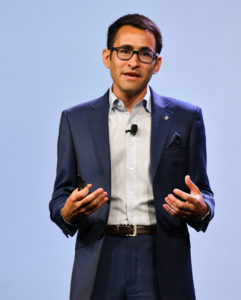The Game Changers
Q&A with Dan Schawbel: How his career and the HR industry has changed
By Yasmeen Qahwash
Mar. 6, 2020
In this Q&A, Dan Schawbel, managing partner of Workplace Intelligence and New York Times bestselling author, discusses the changes that have occurred throughout his career and the HR industry, as well as what innovations are to come in the near future.
Workforce: How have you grown professionally over the course of your career?
Dan Schawbel: Every experience I’ve had and every person I’ve met has helped shaped my career path since I started over a decade ago. In my early career, I wanted to try everything and today I’m focused on what I’m best at and the audience I can add the most value to. Growth has given me clarity in my career.
WF: How has your career changed?
Schawbel: In the first phase of my career, I helped individuals build their online personal brands, then I transitioned to focusing on managing a multi-generational workforce. Now, I’ve transitioned to topics like the future of work and being human in the age of technology. Throughout each phase of my career, my goal has been to advise companies while being a champion of the worker. By serving both audiences, I can make a bigger impact.
WF: What are some of the changes or trends you’ve seen in HR over the past few years?
Schawbel: The biggest HR trends over the past few years are the rise of employee activism, the use of artificial intelligence, the skills gap, the mental health, and loneliness crisis, internal mobility sustainability and the emphasis on the employee experience.

WF: What advice would you tell yourself five years ago?
Schawbel: The biggest advice I would have told myself is that change is already happening, even if it’s not universally seen and felt. The workplace trends we talk about are already happening and in order to prepare for the future, we have to adapt in the present.
WF: What have you learned over the course of your career in HR?
Schawbel: I’ve learned that almost everyone in HR has an unorthodox background, which makes sense because you can’t major in HR in undergraduate college. This means that all HR professionals have a unique lens that allows them to add value to workplace programs.
WF: What are some things that you value most about your career?
Schawbel: I had two choices of career paths to pursue when I was focused on personal branding; marketing or HR. I chose HR because I wanted to help people achieve career success and I saw HR as the path to doing so. My theory is that if we improve the workplace, we improve a person’s entire life since one-third of our lives are spent working.
WF: What do you foresee in the future of HR?
Schawbel: Based on my research, it appears that HR departments will be consolidated in the future. HR administrative roles will eventually be removed from the economy, while the more strategic roles will maintain as long as professionals build the right alliances in their companies. If you’re in HR and you feel like you’re working “like a robot,” you will more than likely be replaced by a robot. Think about getting experience outside of HR to protect your future within the industry.
Schedule, engage, and pay your staff in one system with Workforce.com.
Recommended
Compliance
Minimum Wage by State (2024)federal law, minimum wage, pay rates, state law, wage law compliance
Staffing Management
4 proven steps for tackling employee absenteeismabsence management, Employee scheduling software, predictive scheduling, shift bid, shift swapping
Time and Attendance
8 proven ways to reduce overtime & labor costs (2023)labor costs, overtime, scheduling, time tracking, work hours